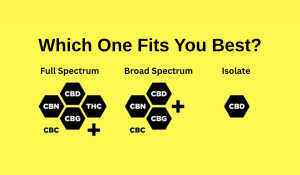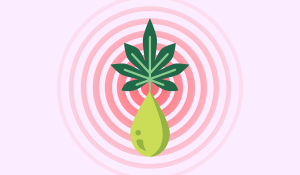Lupus is a chronic autoimmune disease whose effects vary from individual to individual. Several classes of medications — from NSAIDs to immunosuppressants — are used to treat lupus. Given the evidence for CBD’s immunosuppressive and anti-inflammatory effects, it is possible CBD may have some efficacy in treating symptoms of lupus.
Lupus is a chronic autoimmune disease that can be quite uncomfortable as a long-term condition. Lupus affects the skin, heart, lungs and kidney, and its most common form is systemic lupus erythematosus.
An autoimmune disease is one in which the body’s immune system essentially attacks healthy parts of the body. The causes of autoimmune diseases are not well-understood, but there is evidence they run in families, and they tend to affect women more than men. Understanding what is lupus and how to treat it is essential to living successfully with the condition.
Lupus affects different individuals in different ways, and symptoms of lupus can vary from individual to individual. However, common symptoms include:
Because these symptoms may be characteristic of other diseases, it is important to consult with a medical professional to accurately diagnose lupus as the cause.
Lupus presents differently depending on the individual, so treatment will depend on characteristics of your specific manifestation. Typically, treatment regimens involve the following:
There is some clinical evidence that CBD has immunosuppressive effects, suggesting it may be effective in regulating the immune system response associated with lupus. (Broadly speaking, this suggests that CBD for autoimmune diseases may be a useful treatment).
Likewise, there is evidence that CBD has anti-inflammatory effects, which indicates that using CBD for pain and inflammation may be an effective means of dealing with the inflammatory effects associated with lupus.
This said, there has been a lack of standardized clinical trials evaluating CBD’s role in treating lupus, and specific information — such as how to apply CBD for lupus, or what dosage of CBD for lupus is best — is still lacking.
Ultimately, it is essential to consult with a medical professional to develop an effective treatment regimen for lupus, which will depend on your personal experience with the illness. Together, you can decide whether CBD can be a useful part of your treatment program.

1. Full-Spectrum CBD: The All-In-One Option What it is: Contains CBD, minor cannabinoids, terpenes, flavonoids — and less than 0.3% THC. Why choose it: Promotes...
Read More
Why Use CBD for Pain? Chronic pain affects millions and often limits everyday activities. CBD, a non-intoxicating compound from hemp, is emerging as a natural...
Read More
Cannabis has been used for millennia to treat numerous health conditions. Current research offers promising results on the effects of CBD oil on breast cancer.
Read More
CBD Side Effects, Risks of CBD, and CBD Oil Concerns: The Real Deal While many people tolerate CBD well, it’s not without its potential drawbacks....
Read More
What Is CBD for Cats? CBD (Cannabidiol) is a natural compound from hemp. It’s non-psychoactive, meaning your cat won’t get “high.” Instead, it works with...
Read More
If you've ever wondered about using CBD for insomnia, you should know how CBD helps anxiety, stabilizes your sleep-wake cycle, and makes falling asleep easier.
Read More
Key Features Pros Cons Real User Experience Final Verdict: Is Five CBD Full-Spectrum CBD+THC Oil Worth It? Five CBD Full-Spectrum CBD+THC Oil delivers where it...
Read More
CBD-infused salad dressing: Imagine a fresh, crisp salad enhanced with a light, herbaceous vinaigrette containing your daily dose of CBD. To create this, you’ll need...
Read More
What are CBD beverages, exactly? They’re simply drinks infused with cannabidiol (CBD), a compound found in the hemp plant. Now, before you think “high,” to...
Read More
Importance of Quality Control in CBD Quality control is the backbone of a safe CBD product. Rigorous quality standards help ensure that products are consistent,...
Read More